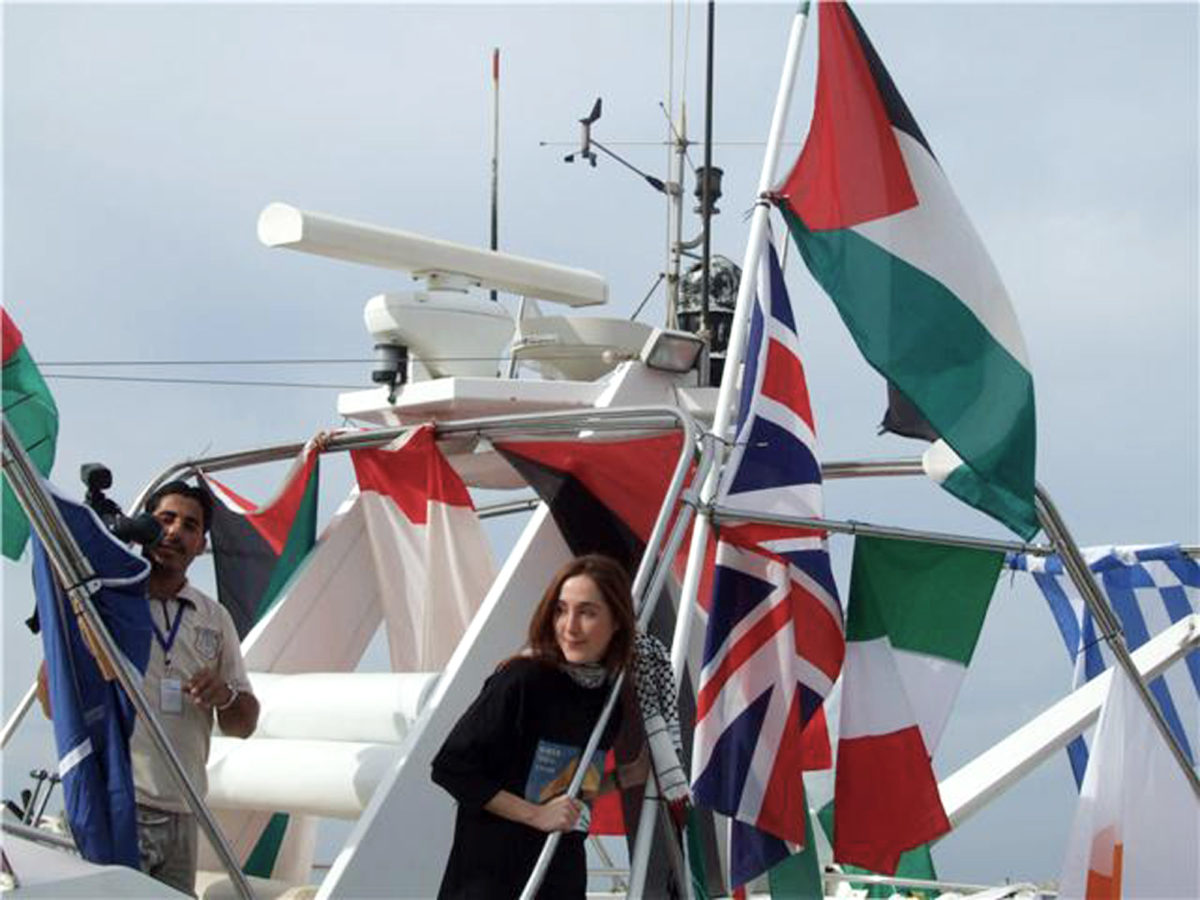
Before the interview, activist and journalist Eva Bartlett puts some cinnamon and brown sugar on her cappuccino. I ask her about the necklace she’s wearing, it’s silver and is interestingly shaped. She says it’s the outline of Palestine, a place where she spent three years.
Palestine is a place with a lot of conflict. According to BBC’s website, the “densely populated [region] on the eastern shore of the Mediterranean Sea […] has been locked in conflict with the Palestinians and its Arab neighbours over ownership of land considered holy by Jews, Christians and Muslims since its creation in 1948.”
Bartlett is involved with the International Solidarity Movement, a Palestine-led, non-violent group of activist who accompany “Palestinians [subjected] to consistent harassment or attacks from soldiers and settlers as well as numerous other situations,” according to the website palsolidarity.org.
In 2008, Bartlett arrived on a boat to Gaza and has since then travelled back and forth.
She visited Fredericton’s Conserver House on Sept. 10, 2013, to talk about her experiences volunteering in Gaza. I wanted to find out more.
Q: When accompanying the farmers on the field was it your own choice to not drop down when the shooting started?
A: It’s a bizarre scenario where you’re in this beautiful, farm area working with people who are singing and joking and then suddenly you’re shot at, and the shots are coming very close to you. Some people call it human shield, but we were there to accompany and to diminish the possibility that farmers would be injured. So, we would stand up with our arms up to show that we were unarmed, we’re no threat to the armed Israeli soldiers who were shooting at us. Saying this is Palestinian land, we’re not leaving.
Sometimes, I joked, I put my hands behind my head, because I used to play piano, so my fingers are very important.
Q: Were you scared?
A: It definitely messes with your normal function. There’s this term called ”fight or flight.“ When you’re presented with danger, you either fight back or flee and we were doing neither. I stopped being afraid and I stopped flinching, but I was very afraid of the people, the farmers that might be killed.
Q: How did you feel when you went to one of the hospitals for the first time?
A: I wasn’t sick to my stomach, but I felt nauseous. I’ve never seen anybody injured before, ever. So, it was a lot to see, seeing a variety from children to elderly with horrific injuries. But I think the time I was most shaken was the first time I actually saw a corpse be brought in. I was with some medics and we had retrieved it from an olive grove where he was killed. And that horrified me because the man’s face had been exploded. And I’ve never seen anything like this before. And I started crying, which is, I suppose, the automatic reaction for most people.
I was just sobbing and the medics told me you can’t be like that you have to be strong. If you’re going to be out here, you have to disciple your emotions.
Q: What did you learn from your experiences in Gaza?
A: It does make you appreciate more what we have here. When I look back on my life of travelling, I’m thinking ‘Oh my Goodness, I’m so privileged. I have been able to go to any country in the world and I complained if I had to wait a couple hours [for a flight] or a couple days for a visa. In retrospect that’s nothing considering there are people who can’t really leave their country for valid reasons. Also about patience. It just puts things into perspective for your own life. There are people who are truly suffering, but they’re still so generous. I would visit families who are desperately poor, but because I was a guest they wanted to feed me. Or at least give me coffee. No matter what you say, they’re still offering. So, there’s just a different culture of communality and hospitality. It also taught me about friendship and family values.
Q: Why is it important to get involved?
A: I wish I had known earlier, like in high school, about these issues because sometimes we are complicit. It’s important to be involved. We don’t have to leave everything to our political leaders and trust that they’re going to take care of this. We need to take power into our own hands and challenge them by whatever means. But certainly not trust that they’re going to do things that are good for other people in the world. To feel empowered that you can do something, some change in the world.
Answers have been edited to fit format.
